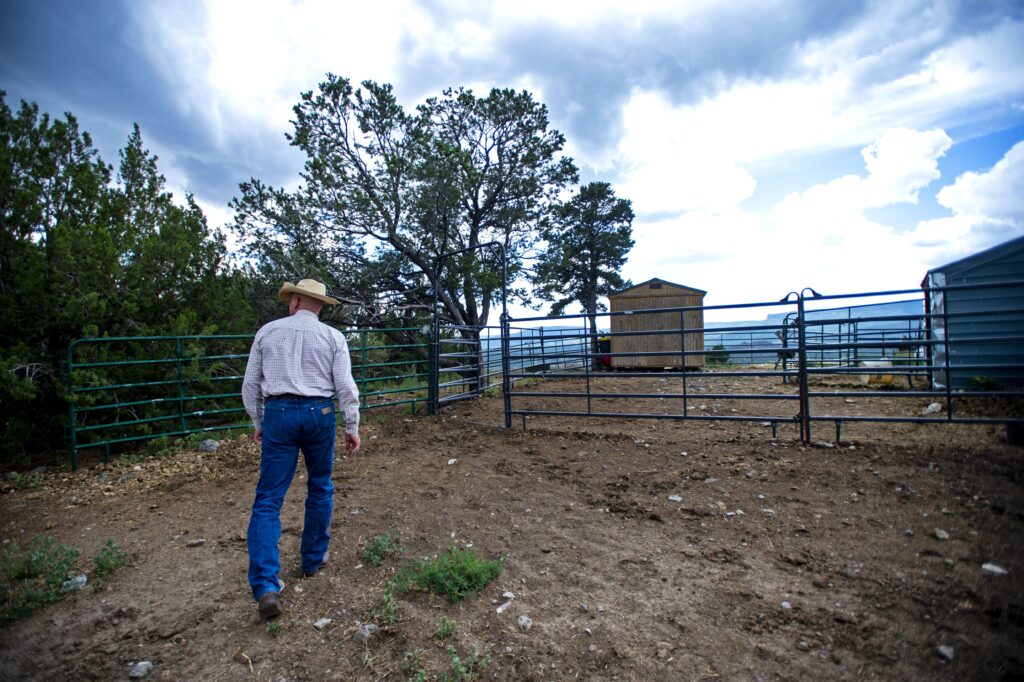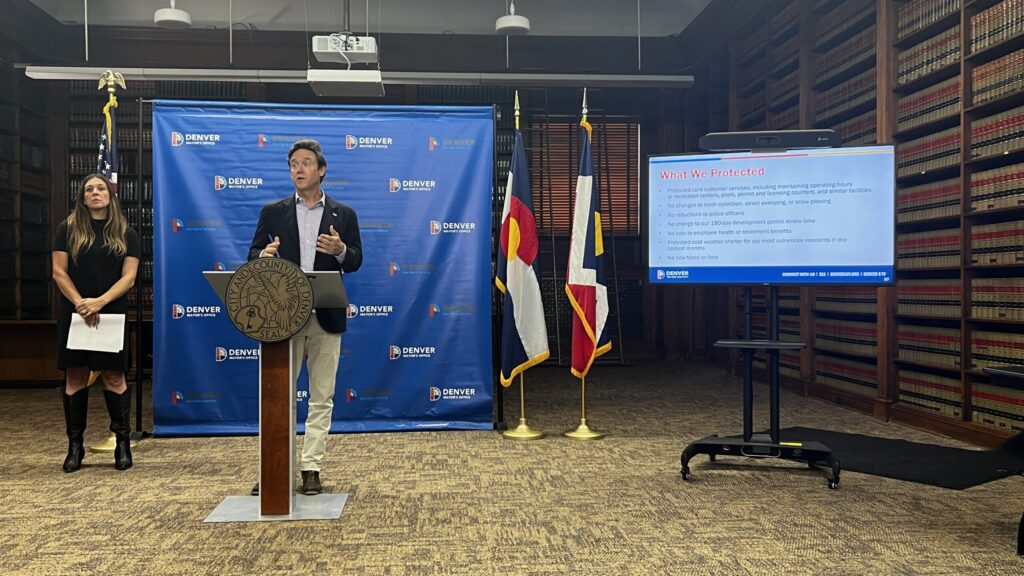Colorado conundrum: Growing economy could mean looming state budget shortfall

Colorado’s economy is performing so well, the state’s upcoming budget is expected to suffer.
Wait, what?
That’s according to budget forecasters who told state lawmakers last week that Colorado could end up with a $180 million budget shortfall at the end of 2016 fiscal year, in spite of the state experiencing its seventh consecutive year of economic expansion.That’s largely because revenue is outpacing spending limits spelled out in the Taxpayer’s Bill of Rights. This means the state could end up refunding $221 million to taxpayers next year.
That, combined with a possibly hefty monetary transfer toward transportation funding, means the state could face a slight deficit when the budget year begins July 1.
The news was part of a set of mostly positive economic estimates provided to the Legislature’s Joint Budget Committee last Friday. Committee members heard separate economic reports from the governor’s budget director and staff from the Colorado Legislative Council.
The looming budget complications put a slight damper on what continues to be a solid economic outlook for the state, overall.
Colorado continues to outpace much of the country in labor market conditions, with an unemployment rate that currently sits at 4.2 percent. And increasing income tax collections from wage withholdings indicates that workers are generally earning a little more money these days.
“We have seen real wage growth across a range of industries,” said Kate Watkins, an economist for the Colorado Legislative Council.
Henry Sobanet, budget director for Gov. John Hickenlooper, said the state’s growth is “pretty self-evident.”
“If you leave your home for a few minutes, you can see all manners of economic activity, even with the slow-down we are seeing in the oil and gas sector.”
Sobanet was referring to a contraction in the oil and gas industry, due to a decline in oil prices over the last year. Oil production is rising, but the demand currently isn’t there. This has led to an increase in unemployment claims within the mining industry, which includes oil and gas claims.
Because of the pullback in the oil and gas industry, the state is projecting a slower rate of growth. However, budget forecasters are not concerned the effects of the industry slow-down will cause conditions to weaken in other economic areas.
“Claims for unemployment insurance have not increased outside of the mining sector, overall employment continues to grow and income and sales tax revenue continue to post solid gains,” according to the report from the Office of State Planning and Budgeting.
State economists also reported what anyone who has recently tried to buy a home in Colorado already knows.
“Demand for metro-area homes continues to outpace supply,” Watkins said. “But construction is not keeping up.”
The housing shortage in the Denver metro area has caused home prices to skyrocket. That’s led to homes in the lower-to-middle price range to go almost as soon as they appear on the market. And that’s caused pressure on the area’s rental market, Watkins said.
TABOR refunds loom
While the state’s forecast remains steady, TABOR refunds could be problematic for lawmakers who will be dealing with a tight budget next year.
The 1992 voter-approved constitutional provision triggers refunds when revenue exceeds the rate of inflation and population growth. Forecasters estimate revenues could surpass the TABOR limit by $221 million.
A large portion of that refund will benefit taxpayers who qualify for the state’s Earned Income Tax Credit, which was triggered into a permanent state due to the high revenue.
Like the federal EITC, Colorado’s version benefits low-and-moderate-income workers. The Colorado Fiscal Institute estimates that $77 million in credits will be made available, with the average credit being $217.
“This is the most significant contribution to the economic well-being of low-and-moderate-income families in Colorado in decades,” said Ali Mickleson, director of legislative and tax policy for the institute.
While tax credits and refunds will put some money in Coloradans’ pockets, lawmakers worry about budgeting going forward.
Adding to the complexity is the possibility of a triggered transfer of $200 million to state transportation funding. But that’s up in the air because the transfer will depend on how large the refunds end up being.
Lawmakers will know what those figures are in November.
The refunds, combined with the possible transportation dollars transfer, means lawmakers may have to make cuts in other areas of the budget when they return to work in January.
“While these forecasts will undoubtedly move up and down, it looks like we’ll need to tighten our belts to get the 2015-16 budget back in balance,” said Rep. Millie Hamner, D-Dillon. Hamner will take over as JBC chairwoman later this year.
House Minority Leader Brian DelGrosso, R-Loveland, said he is encouraged by the state’s continued growth, but is concerned that the pullback in the oil and gas industry “will impact many Colorado regions that are still struggling to recover.”
“With so much unknown in our future, we must commit to fiscal responsibility and take steps to ensure all of Colorado can continue to move forward,” DelGrosso said.
The TABOR complications continue to cause resentment among lawmakers who would rather see the revenue go toward other needs, such as filling the state’s K-12 funding holes.
“The irony of having to make cuts to our schools while handing out tax refunds still baffles me, but that’s, unfortunately, how Colorado’s state budget works,” said Rep. Dave Young, D-Greeley, a JBC member.
– Twitter: @VicVela1














